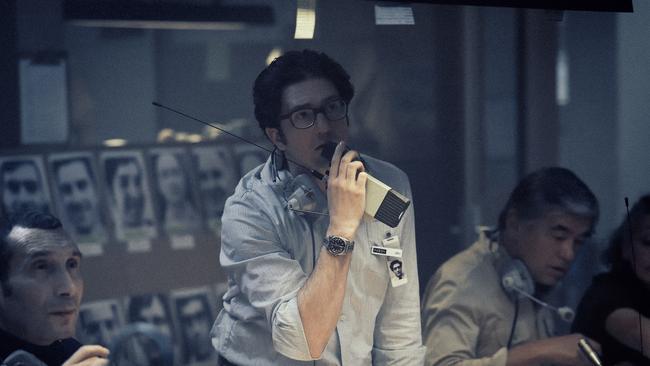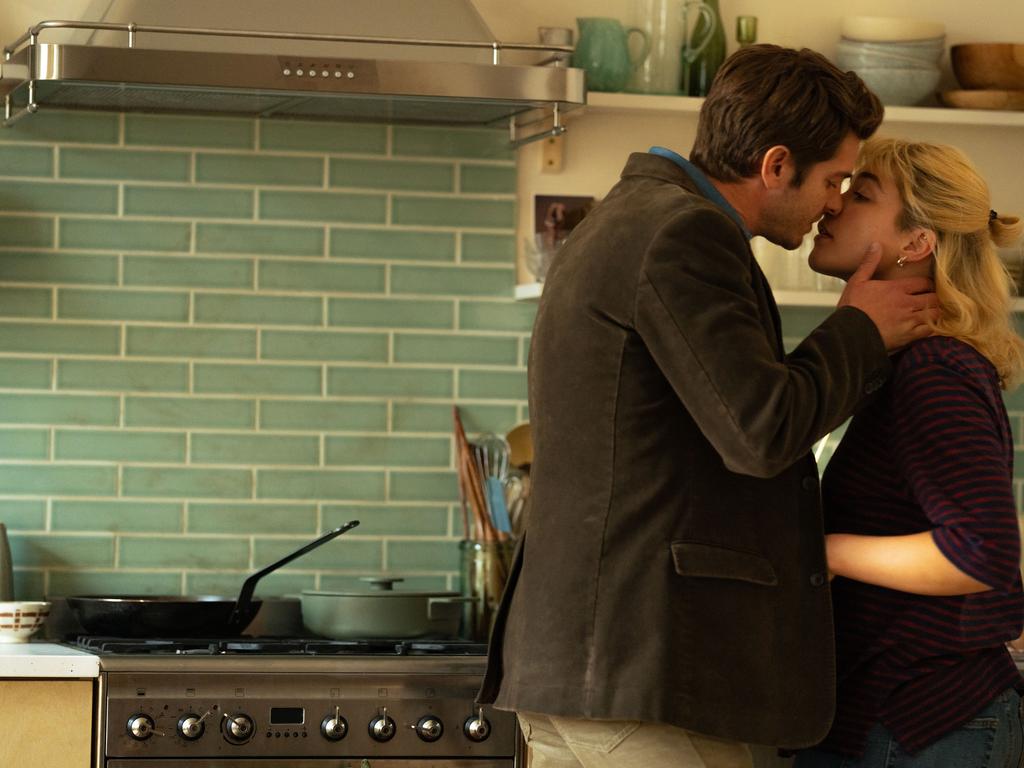‘Can we show someone being shot on live television?’
Journalists who witnessed the terrorist attack on the 1972 Munich Olympics tell the story in the tense thriller September 5.

September 5 (M)
94 minutes
In cinemas
Four stars
There have been numerous films about the terrorist attack on the 1972 Summer Olympics in Munich, West Germany, including Steven Spielberg’s 2005 drama Munich, in which Eric Bana delivers a career-high performance, and Kevin Macdonald’s Oscar-winning 1999 documentary One Day in September.
What makes September 5 different is its point-of-view. It is told from the perspective of the American Broadcasting Company news crew who witnessed what happened and beamed it live into American households.
It’s the first live Olympics and ABC is the exclusive broadcaster. However, it only has access to the satellite at requested times, which intensifies the pressure when the story is changing minute-by-minute.
The hostage crisis we know about – Palestinian terrorists infiltrating the Olympic Village, killing two members of the Israeli Olympics team, abducting nine others and threatening to kill them unless Palestinian prisoners are released – is refracted through how the media, armed with new technology, reports it.
“Can we show someone being shot on live television?” asks one of the ABC journalists. They learn that one of the hostages is Israeli-American weightlifter David Berger and wonder if his family is watching from their living room in Ohio. Soon afterwards, another reporter remembers that the rooms in the Olympic village have TVs. “Are the terrorists seeing this? Is that our fault?” he asks after German police abandon a rooftop rescue attempt.
This exploration of the balance between media responsibility and irresponsibility is timely following the re-election of Donald Trump and ahead of Australia’s federal election. The journalists do cover the story in unprecedented circumstances, but also make a shocking mistake by ignoring one of the fundamental principles of journalism.
Other angles include the fact the news crew is from ABC Sports, not ABC News – “No offence, guys,’’ says someone back in head office, “but you’re way over your head” – and that the German military is not permitted to show arms in “Hitler’s backyard”.
The ABC Sports crew, led by Roone Arledge (Peter Sarsgaard), stick firm and follow the story “wherever it takes us”. Fortunately there is one battle-hardened news reporter to hand, Peter Jennings (Benjamin Walker). “I know the kill zone of a grenade,’’ he says when a colleague warns him to stay safe.
The other main players are ABC Sports head of operations Marvin Barber (Ben Chaplin), Geoffrey Mason (an excellent John Magaro), who runs the ABC control room, and Marianne Gebhardt (Leonie Benesch), a German-Hebrew-English translator who becomes pivotal.
This film is directed and co-written by Swiss filmmaker Tim Fehlbaum, who draws on archival footage, such as the famous shot of the masked terrorist looking out from the balcony, to bring the real history into this well-made, well-acted drama that turns something that happened half-a-century ago into a tense thriller.







To join the conversation, please log in. Don't have an account? Register
Join the conversation, you are commenting as Logout